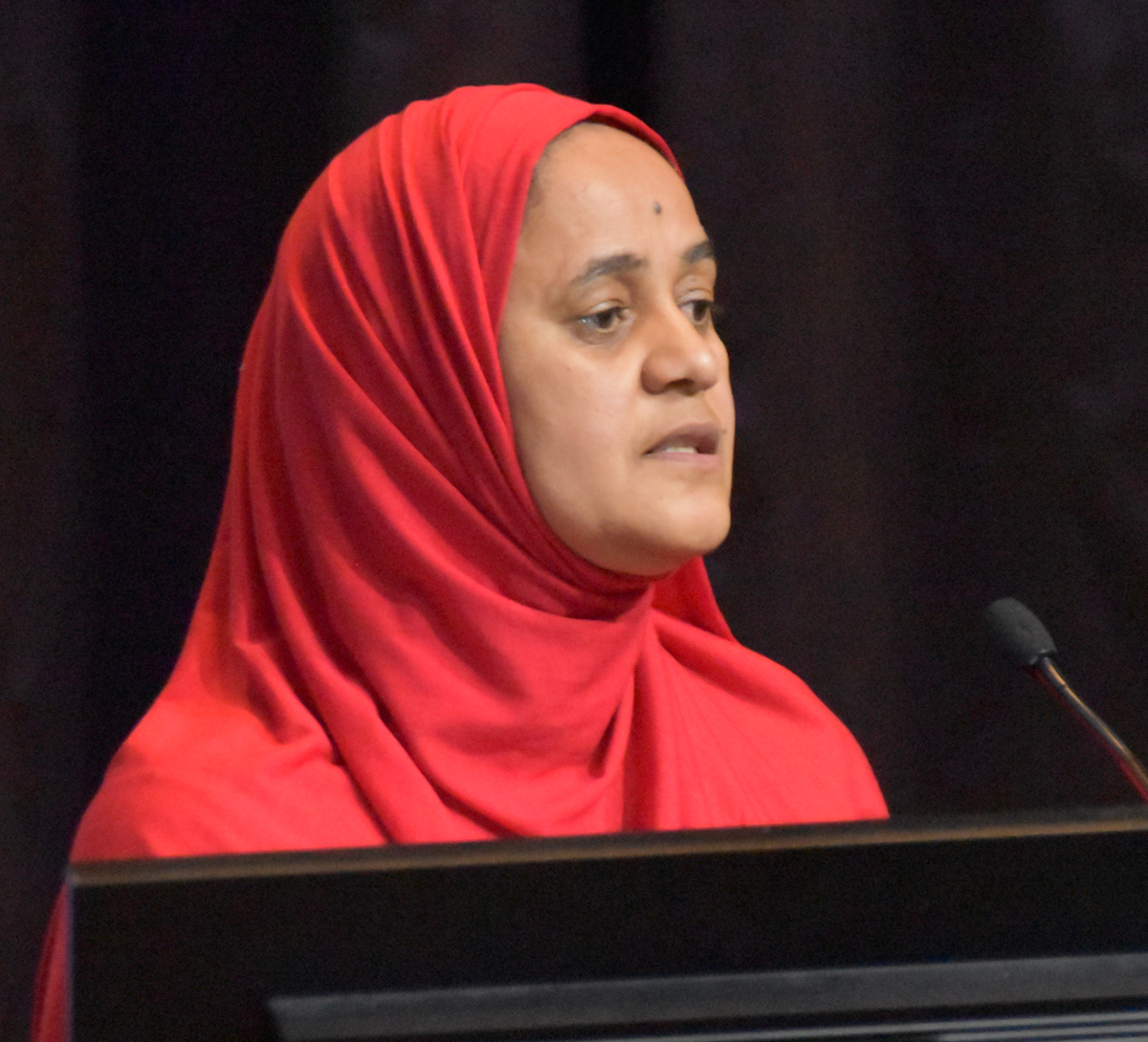Statement by Southern African Alcohol Policy Alliance
Effective alcohol regulation can be Covid-19 legacy
Governments in Southern Africa made the right choice to ban or restrict availability of alcohol during their COVID-19 lockdown periods, Southern African Alcohol Policy Alliance claims. SAAPA supported these decisions.
- by Aadielah Maker Diedericks, regional coordinator Southern African Alcohol Policy Alliance

Restrict availability of alcohol during their COVID-19 lockdown periods was the right choice for three reasons. Firstly, most people access alcohol where they live. Secondly, the well documented binge drinking culture results in intoxication that has been shown to impact on inhibitions and judgement which could lead to drinkers not following COVID-19 protective measures.And thirdly, the fragile health systems needed to be ‘freed’ up.
Alcohol is a legal drug and classified by the International Agency for Research on Cancer as a group 1 carcinogen linked to 7 cancers[1]. Alcohol is also one of the key risk factors for Non-Communicable Diseases (NCDs)[2] as well as road crashes and interpersonal violence. As Professor of Community Medicine and Health Care at the University of Connecticut, Thomas Babor has noted, alcohol is therefore ‘no ordinary commodity’ and requires effective regulation. Consuming alcohol is a choice. Within democracy, choice is a fundamental right. But democracy also comes with basic rules of governance. All businesses, therefore, whether they sell alcohol or not, should be required to follow basic business rules such as having a business license, a health and safety certificate with opening and closing hours and paying taxes. And this is the challenge for Southern Africa – ensuring effective regulation of liquor retail.
The South African Alcohol Policy Alliance supports increased restriction of alcohol availability in line with the World Health Organisation Global strategy to reduce harmful use of alcohol of 2010[3], reiterated by the SAFER initiative of 2018[4], as a means to reduce alcohol-related health and social harm. The ‘Saving lives, spending less’ methodology report costed the implementation of the WHO ‘16 best buys’[5] concluding that these 16 best buys to reduce the cost of NDCs to health systems, inclusive of fiscal measures, policy and clinical interventions would require only a small, annual investment of $1.27 per capita.[6]
In the Southern African region, the legal and prolific illegal liquor outlets, especially in residential areas, makes alcohol available 24/7. The Global Status Report on Alcohol and Health of 2018[7] highlighted that on average the region still has almost 50% of people not drinking. Increasing availability of alcohol and promoting consumption in Southern Africa therefore is strategic for the alcohol industry’s profit imperative.
SAAPA supports the ban or restrictions on alcohol sales during Covid-19 lockdown
Governments in Southern Africa made the right choice to ban or restrict availability of alcohol during their lockdown periods. SAAPA supported these decisions for 3 key reasons. Firstly, most people access alcohol where they live, from shebeens which are too small to promote physical distancing and do not have running water or ablution facilities to ensure hygiene.
Secondly, the well documented binge drinking culture results in intoxication that has been shown to impact on inhibitions and judgement which could lead to drinkers not following COVID-19 protective measures. It is also the norm for drinkers to share drinking bottles and glasses which again would make them vulnerable. And thirdly, the fragile health systems needed to be ‘freed’ up.
Alcohol availability would therefore have taken people out of their homes, going against the very message of ‘Stay Home’ in the attempt to contain the Covid-19. Of course, this was resisted especially by small retailers. In Lesotho liquor traders joined other small businesses to lobby government to make concessions or provide financial aid. In South Africa the Gauteng Liquor Forum with a membership of 20 000, many of whom is illegal, threatened legal action. However, the public health imperative reigned.
Benefits and lessons from the ban on alcohol sales
The ban on alcohol sales have shown benefits and valuable lessons for regulation. The health system has had fewer alcohol attributable hospital admissions. For example, Groote Schuur Hospital in Cape Town, South Africa has reported 66% less trauma admissions. Professor Charles Parry, Director of the Alcohol, Tobacco & Other Drug Research Unit, South African Medical Research Council, and colleagues have calculated that 15 lives are being saved everyday from alcohol-related fatalities as a result on the ban on liqour sales in South Africa during the Covid-19 lockdown. On the other side, and disturbingly, homebrew increased its market. In Botswana, police clamped down on this in rural areas. People were also willing to pay more for the price of a beer with reports as high as M45 in Lesotho.
Covid-19 has highlighted a festering problem long ignored by governments as a whole and its enforcement agencies. There are too many liquor outlets in general and a large number of illegal outlets in residential areas selling alcohol 24/7 making life for residents intolerable. Residents feel unable to challenge this ‘de facto’ phenomenon and communities have come to accept it as part of the ‘culture’.
A 2017 study in Khayelitsha, South Africa, commissioned by the Western Cape government found 1045 outlets, of which only 11% were trading legally, with people living within 3- 5 minutes walking distance from their nearest alcohol outlet. Research shows that easy access to alcohol encourages consumption. One of questions that should be asked is who and how are these outlets supplied with alcohol.
For the Public Good
The governments in Southern Africa has demonstrated that they can take action in the interest of public health. The regulation of alcohol however is not the competence of only one government department but requires a whole of government approach so that everyone can win.
Treasury will have more income via excise tax if all liquor outlets are brought into the regulatory environment. There will be less stress on the fiscus for dealing with alcohol-attributable harm and more resources for development and service delivery. The Health Department will spend less resources on alcohol attributable trauma and have resources for health promotion that educates the public about alcohol attributable harm which is essential and overdue.
Social development will have less alcohol attributable domestic violence and welfare to respond to. The police will have more time and resources to respond on other non-alcohol related crime.
Trade, industry and economic affairs have a special role to harmonise alcohol regulation at the national, provincial and local government level with regard to operating hours, infrastructure, health, density and zoning. The meaningful participation of public health professionals and communities in licensing decisions, monitoring and renewals need to be institutionalised. An adequate number of appropriately placed officials at all levels of government must be trained, resourced and empowered to carry out effective compliance monitoring and enforcement. Tracking systems from production to sales similar needs to be introduced to reduce the supply to the illegal sectors. Russia introduced a tracking system on alcohol products as part of a comprehensive package that reduced alcohol consumption with 43% and increased life expectancy[8]. Alternative opportunities for decent livelihoods that does not involve selling alcohol needs to be part of this regulation of alcohol and re-imaging the economies post Covid-19.
The phasing out of the lockdown has begun. In the months to come, the Covid-19 crisis will pass and we will return to a semblance of normality. As part of that, alcohol will once again be produced, transported, traded, distributed, marketed and consumed.
It cannot be business as usual with regard to number of outlets, trading hours and unregulated supply. The gains made during Covid- 19 to reduce alcohol attributable health and social harms must be acknowledged and translated in urgent action. Existing and draft legislation need to be reviewed and urgently adopted. The greater public need to be consulted to craft laws that regulate availability more effectively and will protect and promote the well-being of citizens. The moment is now to shape the new ‘norm’ and move countries in Southern Africa towards regulated environments in which liquor trade do not harm.
[1] https://www.iarc.fr/wp-content/uploads/2018/07/WCR_2014_Chapter_2-3.pdf
[2] https://www.who.int/ncds/management/WHO_Appendix_BestBuys.pdf
[3] http://www.who.int/substance_abuse/msbalcstragegy.pdf
[4] http://www.who.int/substance_abuse/safer/en/
[5] https://www.who.int/ncds/management/WHO_Appendix_BestBuys_LS.pdf
[6] WHO, 2018, Saving lives, spending less methodology report
[7] http://www.who.int/substance_abuse/publications/global_alcohol_report/en/
[8] https://movendi.ngo/wp-content/uploads/2019/10/9789289054379-eng.pdf

